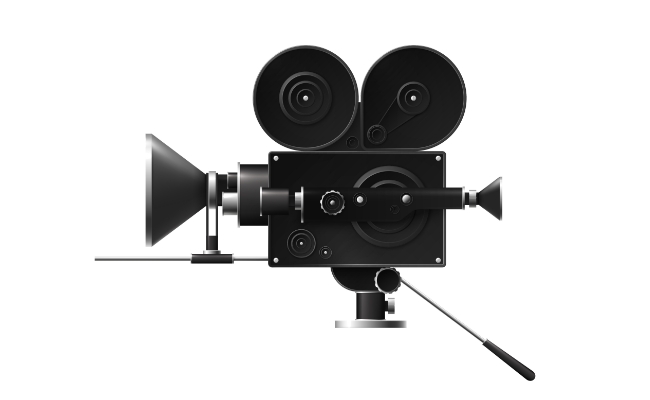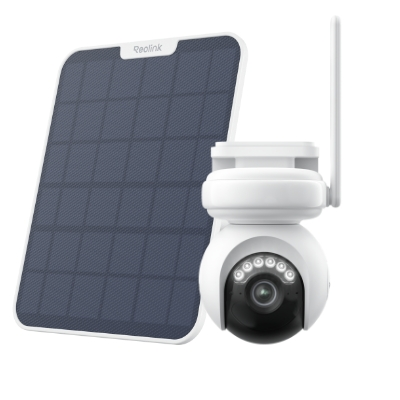When Were Video Cameras Invented: Exploring the Origins

The origins of video cameras can be traced back to a fascinating journey marked by ingenuity and scientific exploration. So, when were video cameras invented? This article will explore the timeline and essential milestones surrounding the birth of video cameras.
When Were Video Cameras Invented?
The first-ever successful video camera was invented by John Logie Baird in 1925. This groundbreaking invention can be seen as the earliest form of modern video cameras.
However, the history of video cameras begins with the earliest attempts at capturing images, where concepts like the camera obscura in ancient times provided rudimentary principles for understanding light and projection.
When did video cameras come out? The first step toward motion technologies took place in the 1880s when Louis Le Prince invented the first motion picture sequences. After decades of evolution, the video camera industry has experienced unprecedented changes.
Here is a brief timeline of the history of video cameras.
- 1888: The French inventor Louis Le Prince created the first motion picture sequences. He recorded the earliest surviving celluloid film, "Roundhay Garden Scene," using the LPCCP Type-1 MkII single-lens camera and a paper film. This camera contributed significantly to the early development of film cameras and motion picture technology.
- 1891: Created by William Kennedy, Laurie Dickson, and Thomas Edison, the first motion-picture camera, "Kinetograph," came out this year.
- 1894: Kazimierz Proszynski, a Polish inventor active in the field of cinematography, brought the Pleograph to the world. This device combined a camera and a projector and significantly pushed the development of journalism.
- 1925: John Logie Baird, a Scottish engineer, invented the first ever-made video camera. This camera is capable of capturing motions and live images.
- 1930s: Vladimir Zworykin, a Russian-American inventor, created the iconoscope, a tube for transmitting images used in early television cameras.
- 1950s: The camera industry was not limited to capturing images during this period. Ampex Corporation, a U.S. company, invented the first videotape recorder. This device can record live pictures from television broadcasts. In the late 1950s, American inventor Philo Farnsworth invented the image dissector, another camera tube type.
- 1980s: The famous camera manufacturer Sony Corporation introduced the first consumer video camcorder, the Betamovie, combining a camera and videocassette recorder into a single handheld device. Also, in this period, people began to use the same camera technology to protect properties. This is where surveillance cameras came into play.
- 1990s: In the late 1990s, DVR devices were introduced into the security camera world, which activated the industry and drove the transition from analog cameras to digital ones.
Who Invented the First Video Camera?
The credit for inventing the first working video camera is often attributed to John Logie Baird, a Scottish engineer and inventor. In 1925, he successfully demonstrated a mechanical television system that captured and transmitted basic moving images. After this, he continued to refine his television system, further improving transmission quality and image resolution.
Impact of Video Cameras on Industry
People are curious about the debate of “When was the video camera invented?" because the development of video cameras has profoundly influenced society and various industries.
Surveillance and Security
Video cameras have changed how we perceive, communicate, and engage with the world. Video cameras are integral to security and surveillance systems in public spaces, businesses, and homes. They enhance safety, deter crime, and aid in monitoring and investigating incidents. Their presence has significantly impacted law enforcement and crime prevention.
Industry-leading 4K Continuous Recording Battery Camera
4K UHD Continuous Recording; ColorX Night Vision; Pan & Tilt; Automatic Tracking; All Recordings Stored Locally.
Journalism
Video cameras serve as a powerful tool for capturing and reporting news. They can bring events and stories to life with impactful visuals. With the help of transmission technology, video cameras also offer unparalleled immediacy. Documentaries and news reports leverage video cameras to provide immersive narratives and drive social and political discourse.
Media and Entertainment
Video cameras revolutionized entertainment and enabled the reaction of movies, television shows, and digital content. They also facilitate filmmaking and allow aspiring creators to produce and share their stories globally. The proliferation of streaming platforms and online content also owes its existence to the accessibility and versatility of video cameras.
Advertising and Marketing
Video cameras play an essential role in advertising and marketing strategies. They enable the creation of compelling commercials, promotional videos, and multimedia campaigns that resonate with audiences. The images they capture can influence consumer behavior and brand perception.
Innovations in Video Cameras
Starting from the invention of the first video camera, the development of these devices never stopped, and some high-end technologies have been incorporated into these devices.
- 4K or Higher Resolution: The trend toward higher resolutions, such as 4K and beyond, continues. Additionally, increased frame rates for smoother motion and enhanced clarity in fast-paced scenes are becoming more common.
- IoT: Video cameras are incorporating improved wireless connectivity and seamless IoT integration. Modern video cameras allow live streaming, sharing, and remote control functionalities. Security video cameras can even be integrated into smart home systems for enhanced safety.
- Wi-Fi 6: Wi-Fi 6 has also been introduced into video cameras. Wi-Fi 6 offers higher bandwidth capabilities and allows video cameras to transmit high-definition and even 4K resolution footage more reliably and efficiently.
- AR and VR: Integration of AR and VR capabilities into video cameras is on the rise. These features enable immersive experiences, interactive storytelling, and enhanced visual effects.
- AI-Powered Features: Artificial intelligence is integrated into video cameras to enhance capabilities like autofocus, image stabilization, facial recognition, and scene analysis. AI-driven tools also assist in post-production tasks and can be used for simplifying editing and enhancing overall quality.
FAQs
When was video invented?
Historians widely believe that Louis Le Prince made the first-ever motion video in 1888 using a single-lens camera. This video, "Roundhay Garden Scene," is a two-second silent film showing people walking in a garden.
When was the first video camera invented?
Many credit John Logie Baird with inventing the first working video camera in the early 1920s. He showed a TV system that used machinery to take and send moving pictures. This was a big step in making video cameras and TVs. When he showed it to the public in 1925, it became a critical moment for video cameras.
Did video cameras exist in the 1980s?
Yes, video cameras did exist in the 1980s. During this decade, video cameras were becoming more accessible to consumers. The 1980s saw the popularity of camcorders, which combined a video camera and a VCR (video cassette recorder) into a single unit. These camcorders allowed people to record video onto portable videotapes, such as VHS or Betamax tapes.
Conclusion
The question of when were video cameras invented reflects the collective efforts of inventors, engineers, and pioneers who contributed to this remarkable innovation. Video cameras have become indispensable tools in our daily lives. Did you know when the first video camera was invented? Do you get the answer after reading this? Share your thoughts in the comment section below. We'd love to hear from you!
Search
Be in the Know
Security insights & offers right into your inbox

